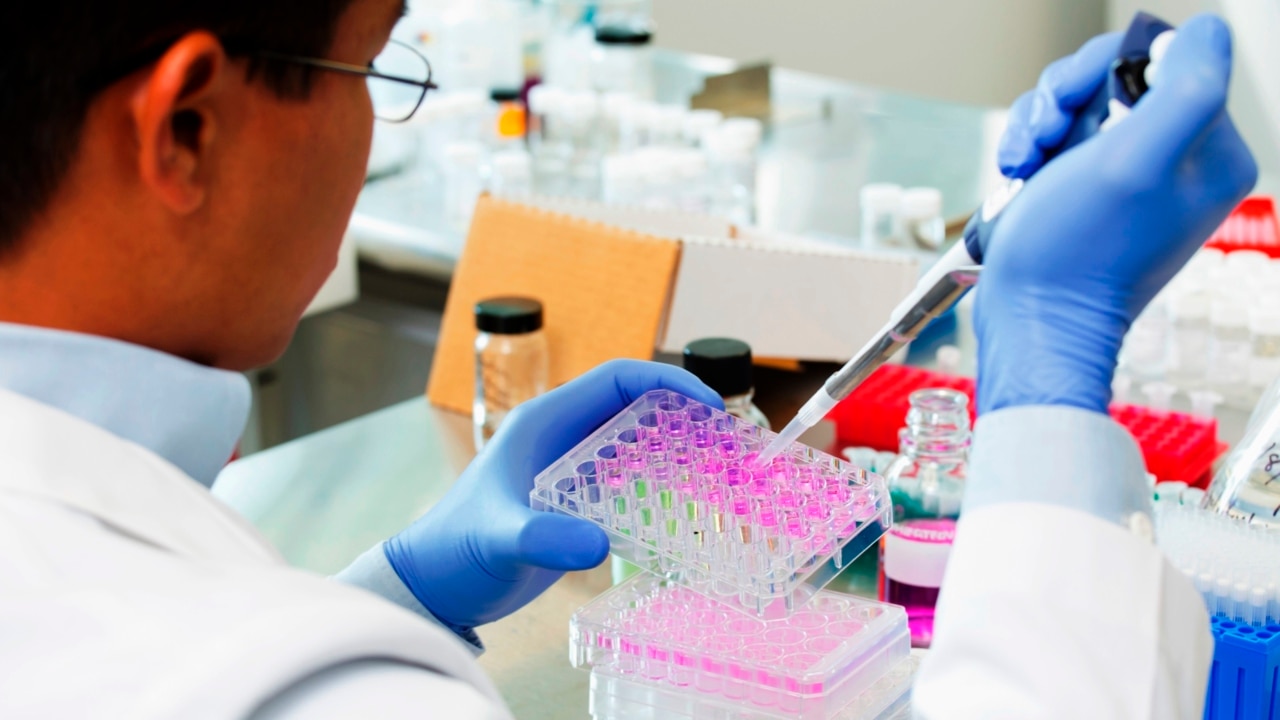New prostate cancer nuclear medicine therapy a ‘game changer’
A new prostate cancer therapy used only in late-stage treatment where conventional therapy has failed has been found to dramatically improve outcomes for patients in earlier stages.

A new type of prostate cancer therapy that is used only in late-stage treatment where conventional therapy has failed has been found to dramatically improve outcomes for patients in the earlier stages of this disease.
A study by the Peter MacCallum Cancer Centre, published on Sunday in Lancet Oncology, has found that a targeted radioactive infusion known as Lutetium-177 PSMA-617, or LuPSMA, resulted in full remission for 41 per cent of early-stage prostate cancer sufferers in a Stage II clinical trial, compared with just 16 per cent for current standard-of-care, which includes surgery and radiotherapy.
The radioactive isotope Lutetium 177 underpins the therapy and is produced and supplied by ANSTO from its nuclear medicine precinct in Sydney.

The nuclear medicine technique known as PMSA theranostics, pioneered in Australia, has already achieved striking results in extending the lives of men who had exhausted conventional treatment. It is far more effective than chemotherapy or radiation.
Lutetium-177 was approved for wide use in the US and regulatory approval in Australia is pending.
Theranostics uses radioactive molecules for both imaging and treatment, enabling a personalised treatment where doctors can see exactly what they are treating and select patients most likely to benefit.
This results in an effective therapy using a liquid form of radiation that locks on to the cancer cells, delivering damaging radiation to tumours and sparing healthy tissues.
The therapy avoids some of the devastating side effects of surgery and radiation, such as incontinence and loss of sexual function.
The Peter MacCallum UpFrontPMSA study was the first to test this treatment in patients with newly diagnosed prostate cancers that had spread.
The trial’s “remarkable” results have been presented at Europe’s major cancer conference, the European Society for Medical Oncology Congress 2024.

The UpFrontPMSA Phase II trial enrolled 130 people from 11 Australian hospitals. All participants received androgen deprivation therapy – starving their prostate cancer of the hormone it uses as fuel. and were then randomised to receive chemotherapy alone or chemotherapy plus LuPSMA.
“Adding LuPSMA therapy to the standard-of-care approach was seen to dramatically improve responses compared to chemotherapy alone,” said associate professor Arun Azad, who presented the results at ESMO 2024 in Barcelona.
“We looked for undetectable PSA – a marker for prostate cancer – at 48 weeks after treatment and this was achieved in 41 per cent of patients who received LuPSMA compared to just 16 per cent for the standard-of-care.
“This is a remarkable result (but) before we can say this should change clinical practice, we need to see this replicated in a larger phase III clinical trial and, thankfully, a trial like this is already under way globally.”
Benefits were also seen across a range of progression-free survival measures, while adverse events were equivalent in either treatment approach and linked mostly to chemotherapy.






